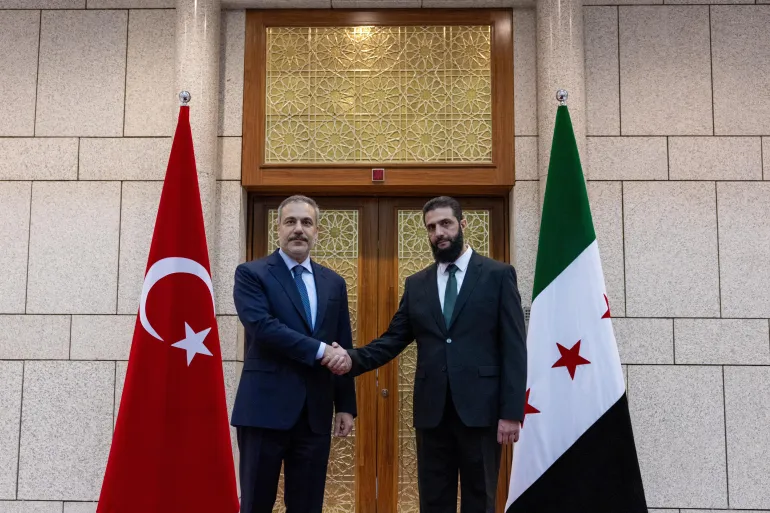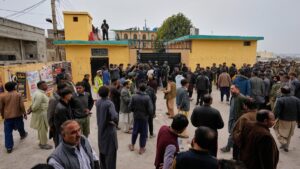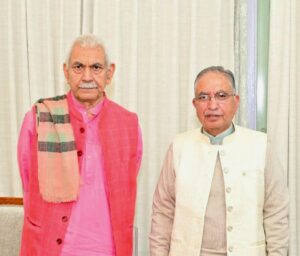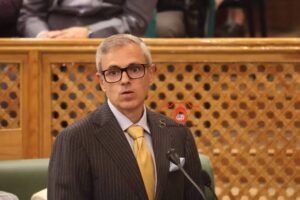Türkiye as a Strategic Actor in Syria with a Humanitarian Role

Opinion by| Farooq Ah Lone
After the fall of Assad, the most challenging task for the new regime in Damascus was to unite the country and rebuild its war-torn territory. The new ruler of Syria, Ahmad Al Sharaa, vowed to bring the nation together and take concrete steps toward rehabilitation. Reconstruction was impossible without opening the country to the outside world and securing recognition of the new government from the international community. Al Sharaa repeatedly assured global powers that minorities would be protected and that a new era of full human rights would emerge in Syria.
Seeking legitimacy from the United States and European nations and to convince Washington to lift sanctions Al Sharaa pursued an active diplomatic outreach. He welcomed European leaders, met with U.S. President Donald Trump, and adopted a softer stance toward Israel, even as Israeli airstrikes continued on Syrian soil. This diplomatic posture was intended to convince the world that Syria’s new leadership was moderate and secular despite its past ties to extremist organizations. Political analysts generally agree that Al Sharaa succeeded in portraying himself as a secular and pragmatic leader.
Regionally, the new administration carefully assessed its neighbors and began cultivating closer ties with Türkiye, a country that had opposed Assad, while taking a harder line against Iran, which had supported the former regime. Warm signals were also sent toward oil-rich Gulf states, particularly Saudi Arabia and the UAE, both of which pledged support for Syria’s development. This broader diplomatic backing from Muslim countries was fully leveraged by the new rulers in Damascus.
For Türkiye, the arrival of a friendly regime in Syria presented an opportunity to expand its regional influence. Ankara saw Damascus as a potential ally to counterbalance Iran and to help prevent Israel from destabilizing the region. Reports suggest that Türkiye may build an airbase in Syria, further cementing military and strategic cooperation. Recently, Türkiye, along with Qatar and Azerbaijan, successfully initiated gas supplies to Syria from Azerbaijan via Turkish territory—a connectivity project funded by Qatar. This move also reflects Qatar’s ambition to strengthen its position in the regional energy market against Saudi and Emirati influence.
Experts argue that Türkiye’s engagement in Syria must be understood within the broader energy and connectivity context. By leveraging its strategic geography positioned at the crossroads of three continents Türkiye aims to emerge as a pivotal energy hub and trade corridor. Turkish leaders recognize that a peaceful neighborhood is essential for pursuing trade and political ties with Europe, Asia, and the Middle East. This reflects a realist perspective, where securing stability at home and in the immediate region is key to advancing global ambitions.
Author: Farooq Ahmad Lone writes on global politics. He can be reached at lonefarooqahmadir12@gmail.com.






